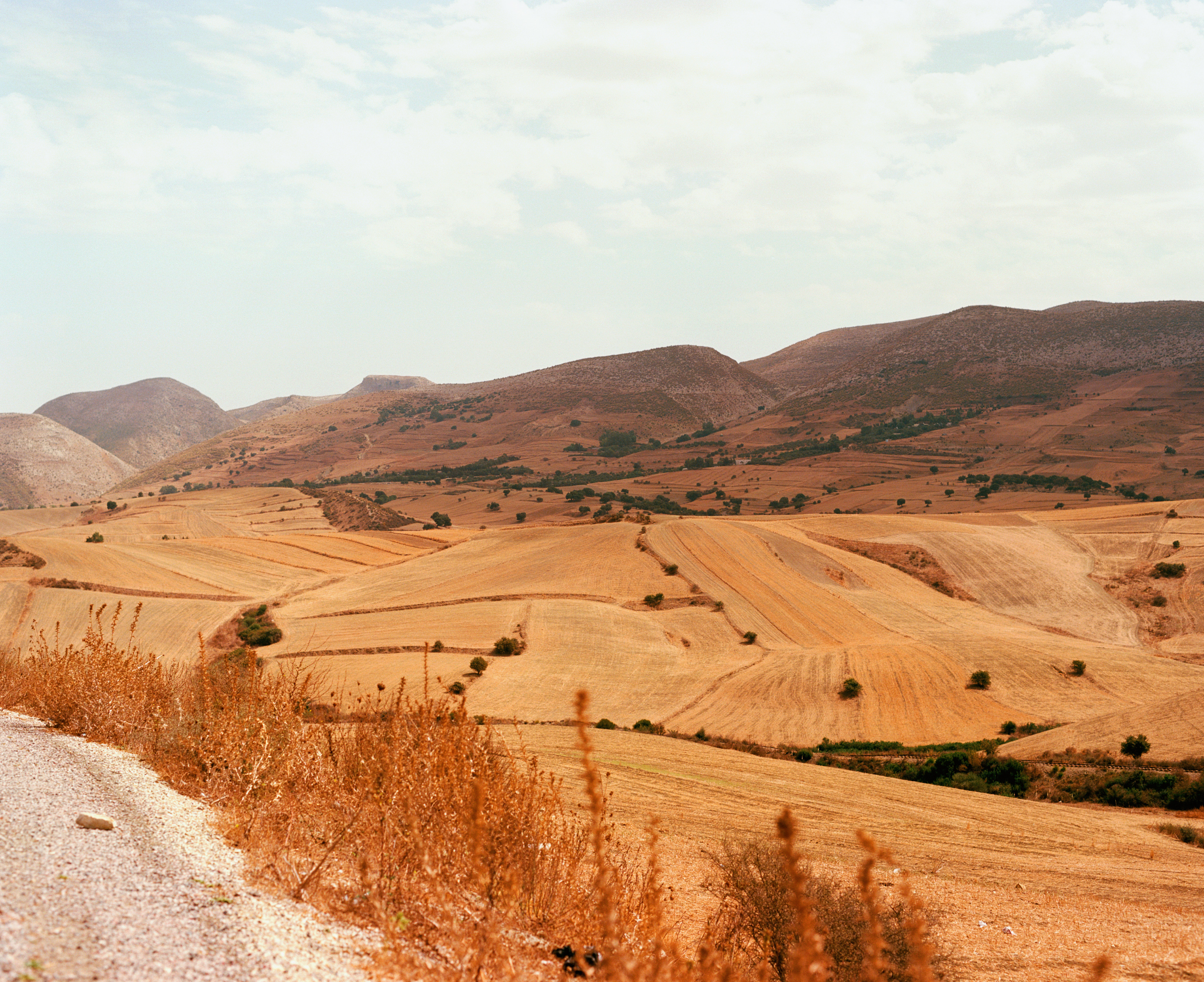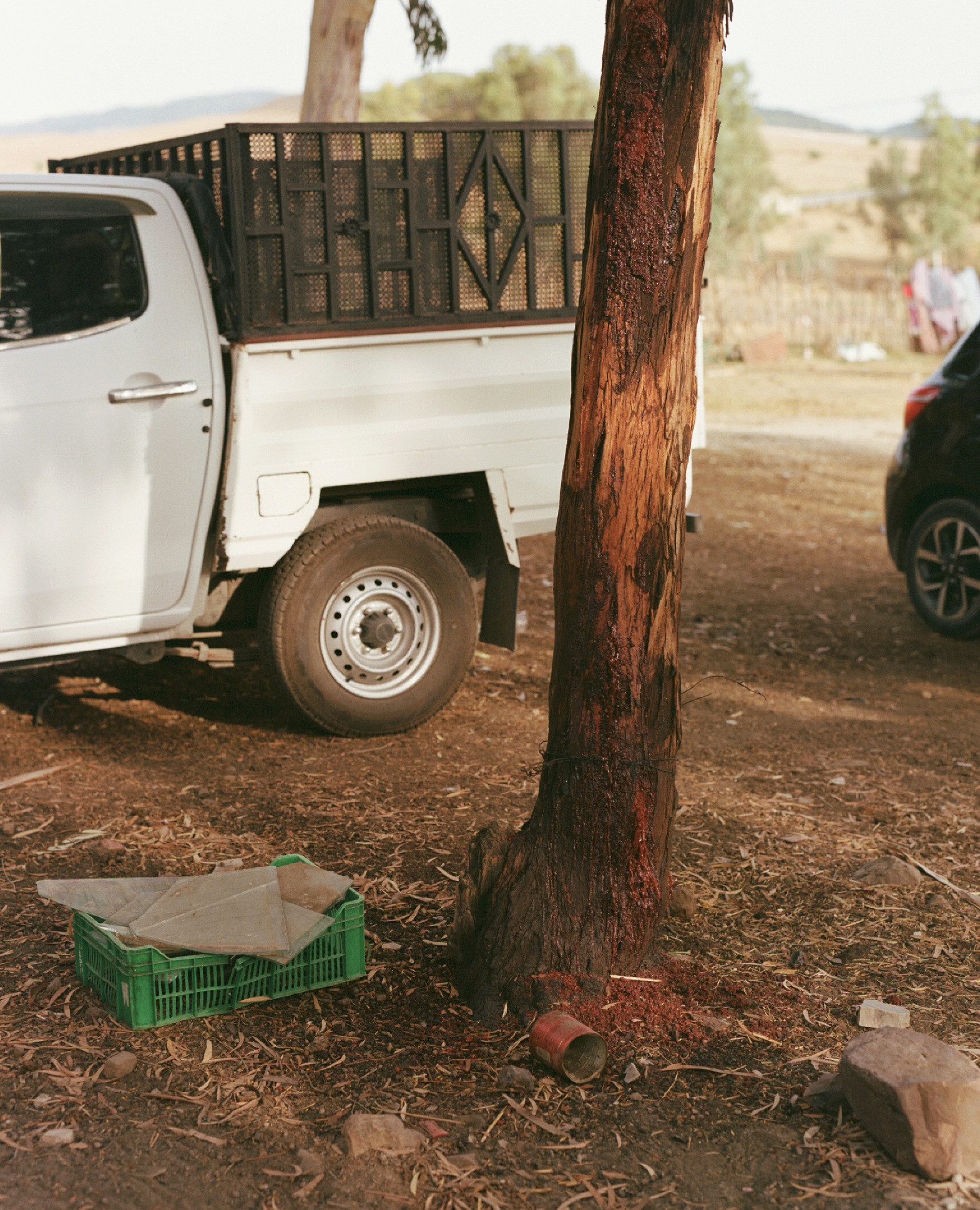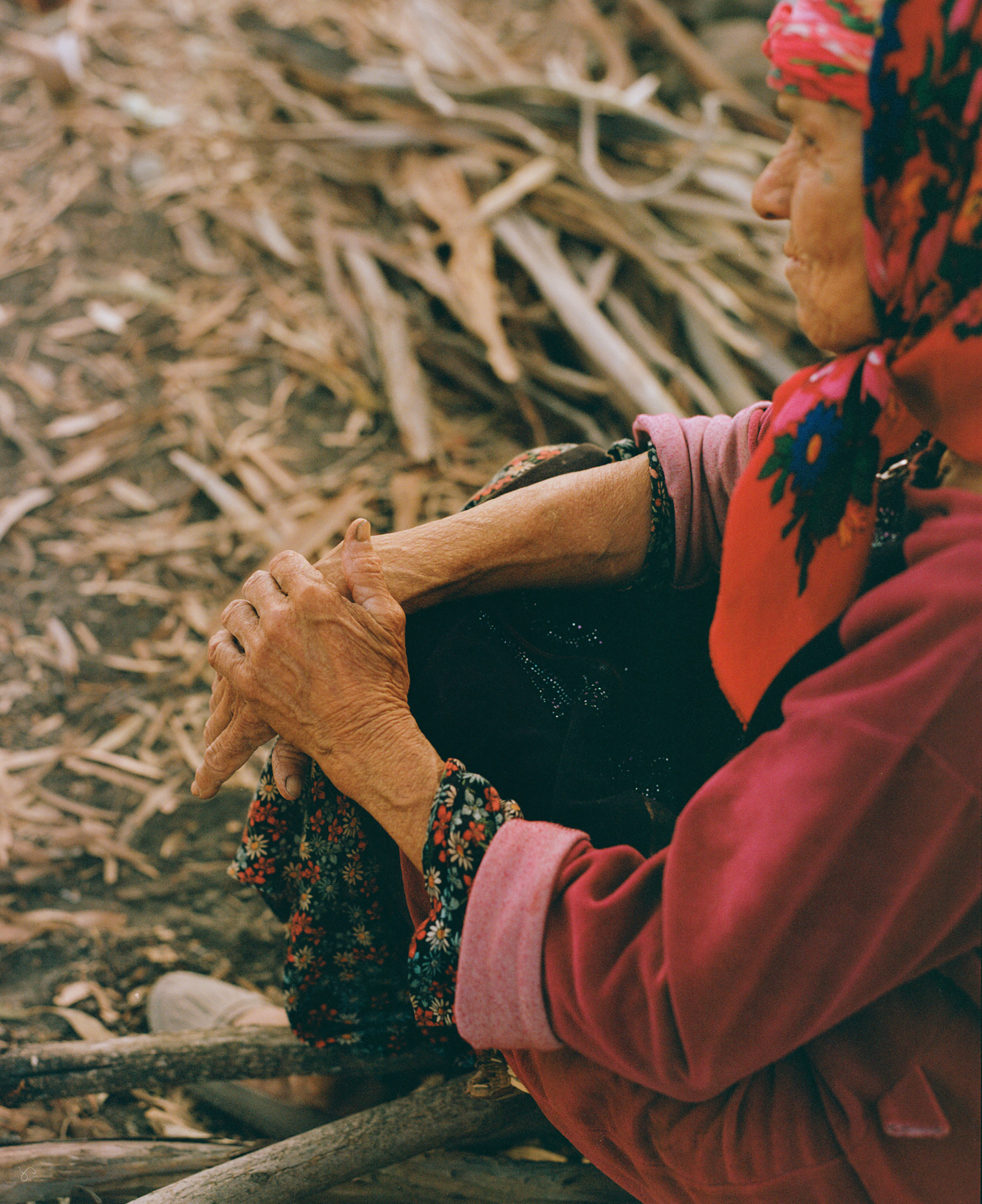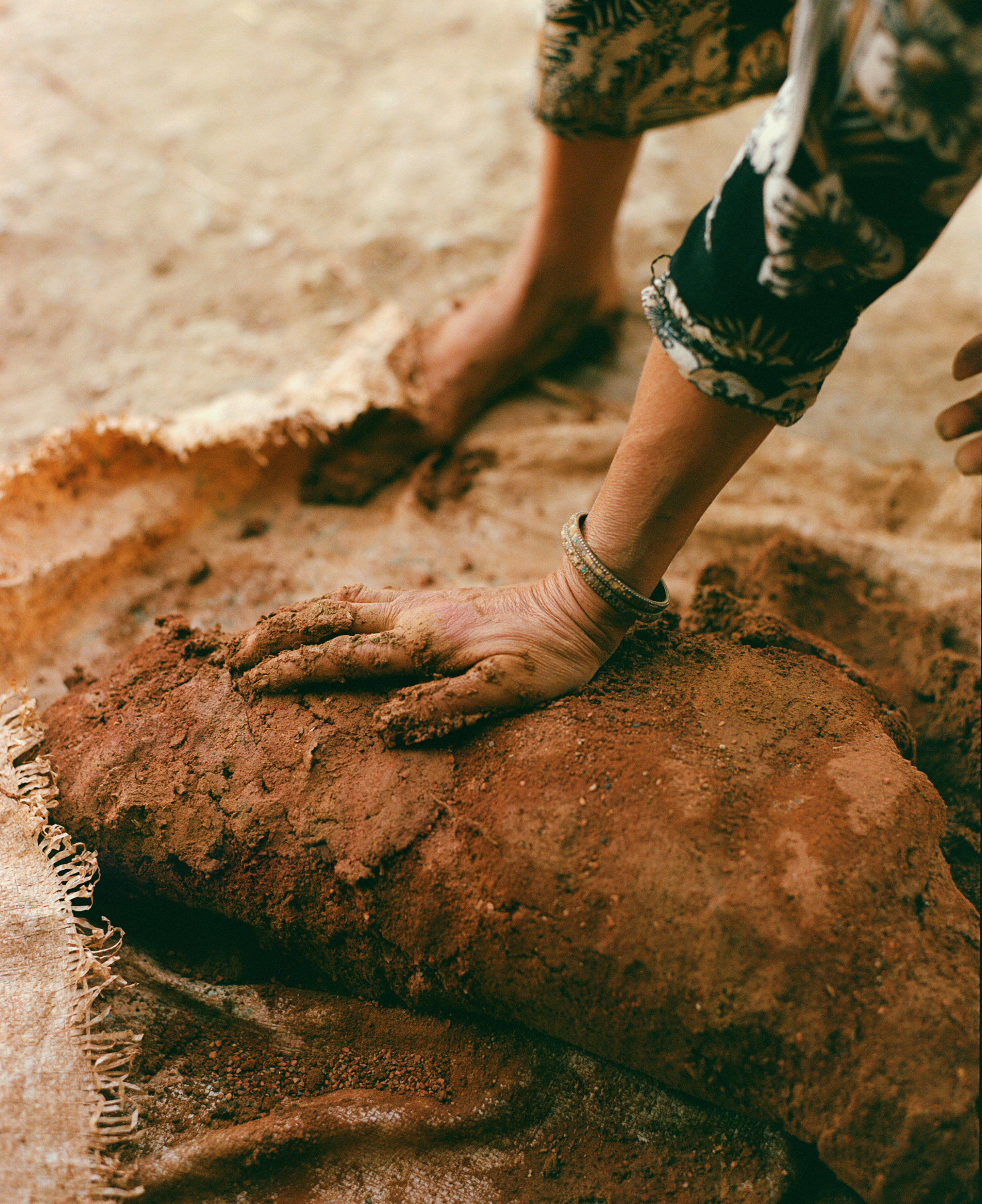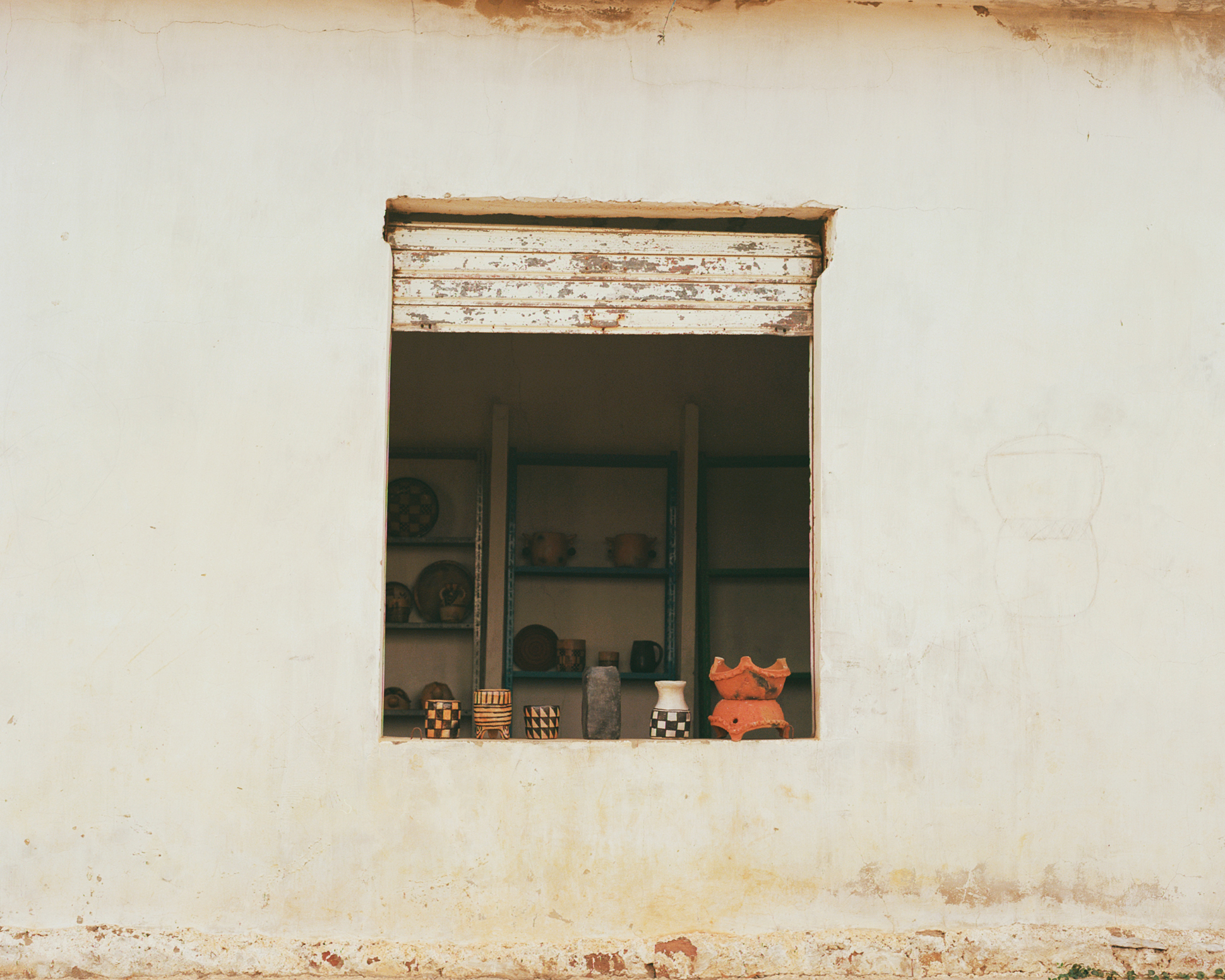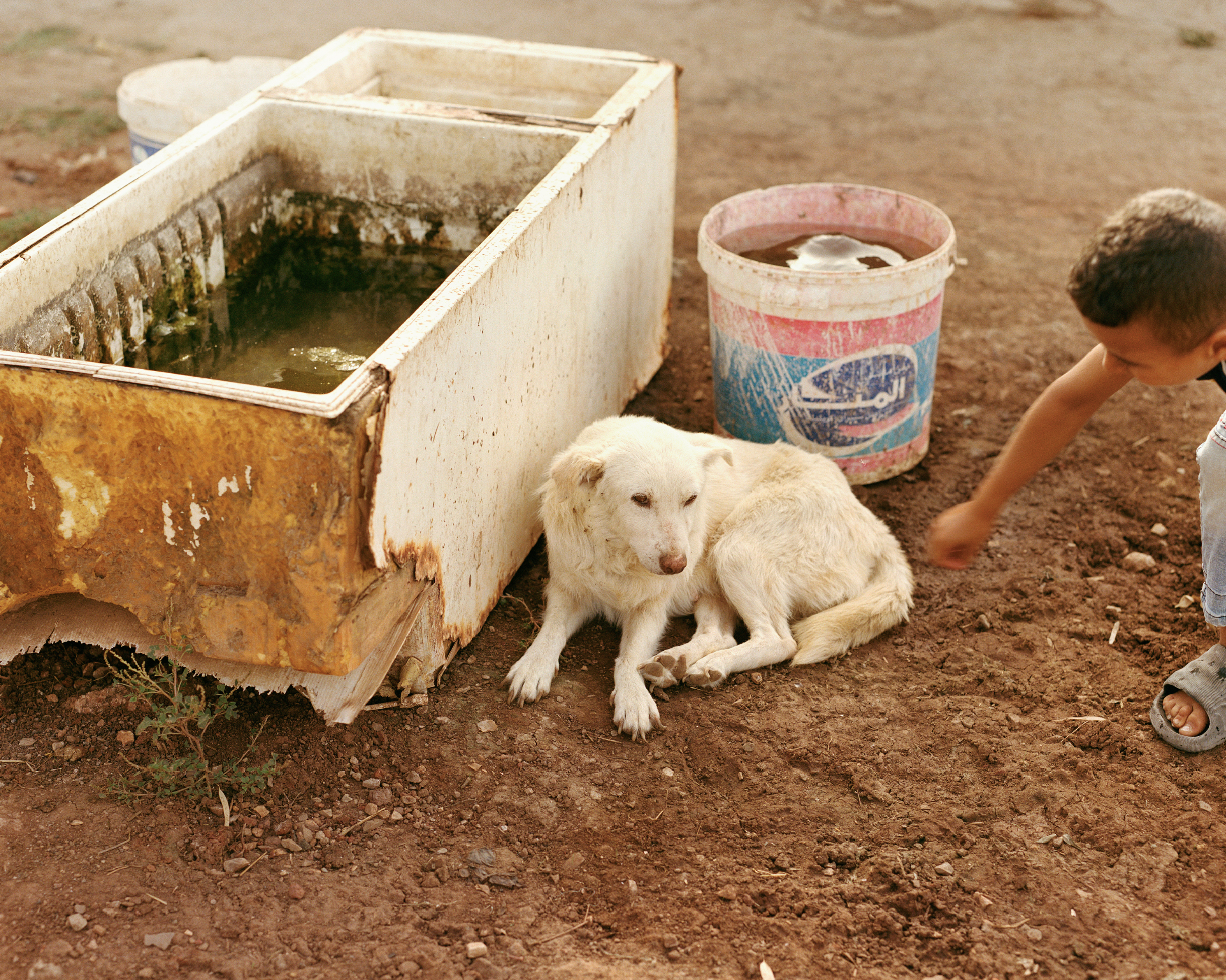WOMEN OF SEJNANE
Tunisia, 2023
Years ago, in my grandmother’s kitchen, she handed me a dish—old, hand-painted, and weathered by time—and told me to take it with me. At the time, I didn’t fully grasp its significance. For years, it accompanied me through countless moves, a quiet witness to my changing landscapes. Only later did I discover its origin: this was a piece of Sejnane pottery, a craft recognized as part of UNESCO’s Intangible Cultural Heritage.
Sejnane pottery traces its roots to the practical needs of rural families in northern Tunisia. These handmade ds ishes were originally crafted for domestic use—simple yet essential objects for serving meals and sustaining daily life. Over time, the women of Sejnane transformed this craft into a form of artistry and a means of economic empowerment. Today, these objects, adorned with hand-drawn geometric patterns and motifs steeped in ancestral knowledge, are a symbol of cultural heritage. By selling their work, the women of Sejnane have carved out a space of autonomy, sustaining their families and preserving their traditions in a rapidly shifting world.
In 2023, I traveled to Sejnane to meet the Ayari family, a lineage of women who continue to practice and pass down this ancestral craft. Immersing myself in their world, I observed their meticulous processes: sourcing and preparing clay from the land, shaping it into forms of utility and beauty, and firing the pieces. Each step reflects a deep connection to their environment and a collective memory woven through generations.
